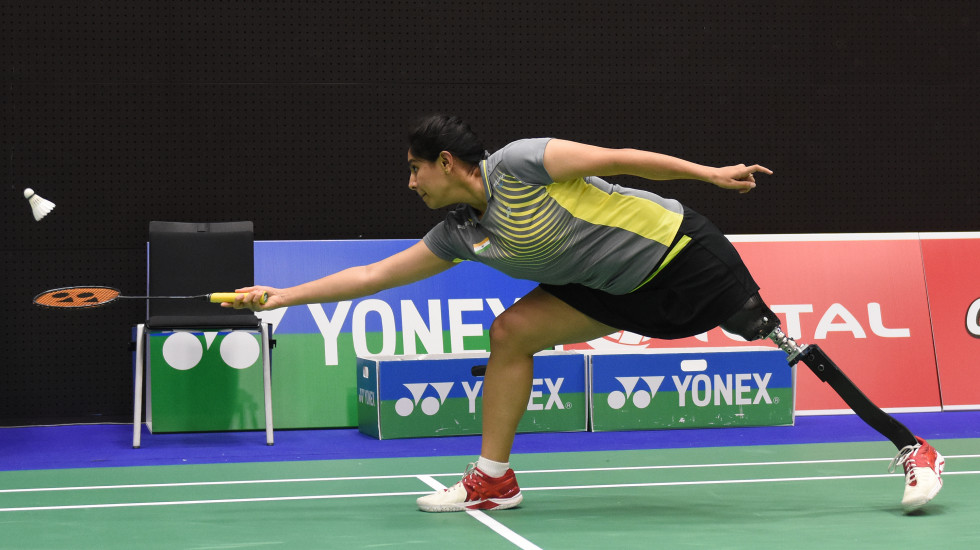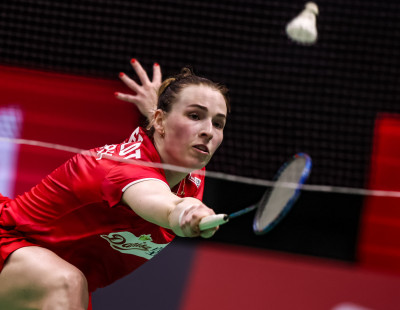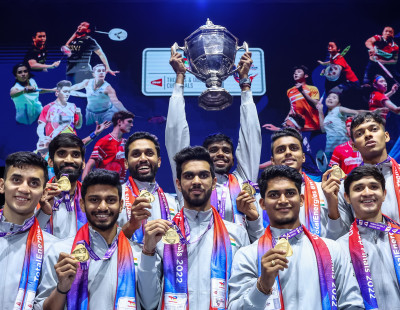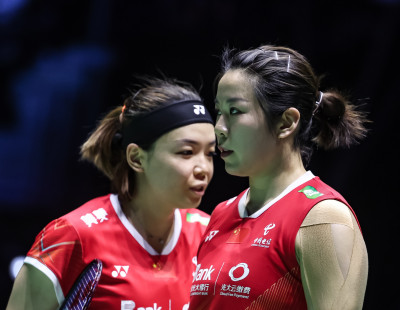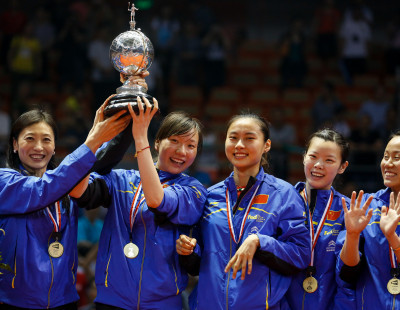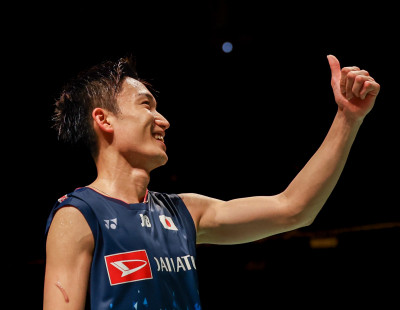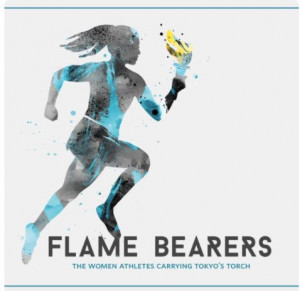
Joshi features on podcast ‘Flame Bearers’
Manasi Joshi is India’s current Para badminton world champion and BBC India’s Sportswoman of the year. She claimed the World Championships gold in Basel last year and is set on the road to the Paralympic Games in Tokyo 2020 (postponed to 2021).
Joshi features on the podcast ‘Flame Bearers – The Women Athletes Carrying Tokyo’s Torch’ this month to shine a light on gender and disability in badminton.
Listen to the episode of ‘Flame Bearers – The Women Athletes Carrying Tokyo’s Torch
In 2011, Joshi, a recent graduate, had begun her first job as a software engineer in the Indian city of Mumbai. Scarcely 10 minutes into her journey, disaster struck – as she took a U-turn under a flyover, a lorry travelling in the wrong direction hit her car, severely injuring her leg. Joshi was to lose the leg in hospital, devastating her. Fast forward to 2019 and it’s a very different Manasi we see before us.
“The turning point of my life was the accident, which led to the amputation of my leg. After the accident, I had to relearn everything – from walking to conducting daily chores and activities on my own,” she said.
Badminton is one of the few sports that offers a level playing field for participants irrespective of gender and abilities.
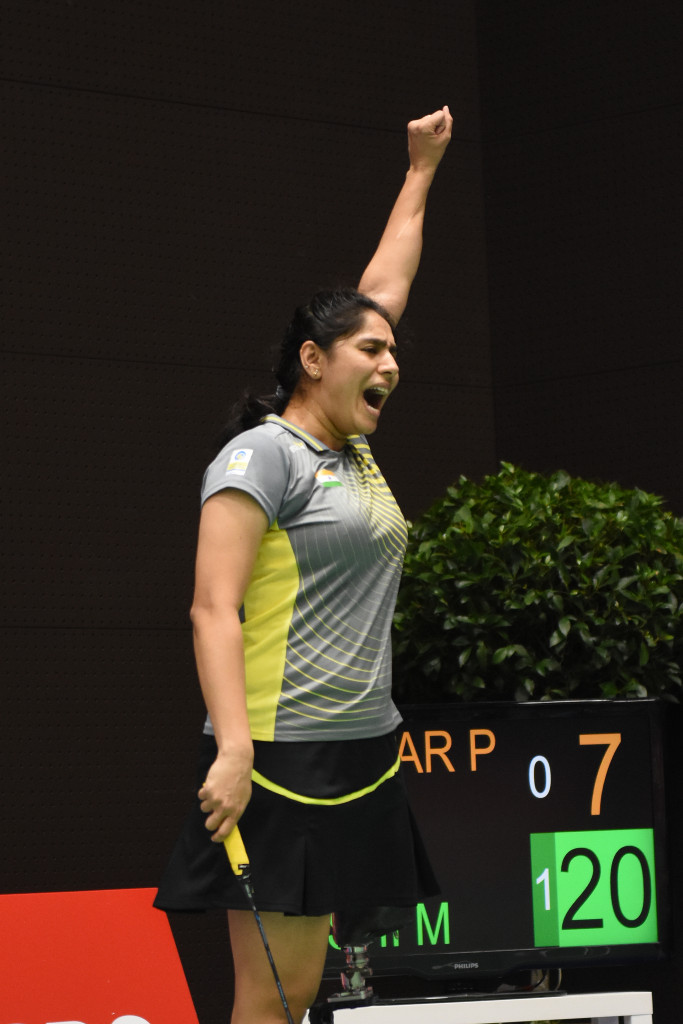
Joshi is excited about her debut at the Paralympics next year.
BWF’s Focus on Para badminton
“When it comes to equality, we have to give every child a chance to play badminton for life,” said BWF Senior Education Manager Sharon Springer on the podcast.
“You see these athletes on the courts going corner-to-corner and realise that these women are incredibly fast and flexible. Badminton has a lot of equality. The courts are the same, equipment is the same and the point system is the same – whereas in other sports there may be different resources,” Springer said.
Notably, the prize money is equal for both genders too.
Joshi has been playing badminton since an early age and some of her earliest memories centre around playing badminton with her father.
“I was about six and we just had one racket in my house. My father would throw the shuttlecock to me and I’d try to hit it.”
Badminton Helped in Recovery
Badminton helped Joshi on her road to recovery following the accident and improve her hand-eye coordination, vital to physical rehabilitation.
During her physiotherapy sessions, Joshi stayed focused on getting back. “I would say I want to get back on to court as soon as possible,” Joshi said.
She played badminton with her brother, also a keen badminton player.
Joshi securing her spot at next year’s Tokyo 2020 Paralympic Games is an incredible accomplishment and a testament to her tremendous courage and determination.
With Para badminton making its debut at the Paralympics, Joshi can’t contain her excitement.
Working to Clear Misconceptions
The ‘Flame Bearers’ podcast highlights Joshi’s work as an advocator of disability rights in India. Those with disability are treated with pity, or with certain stereotypes in mind, and that fundamentally is an area in need of change.
“You have to work hard to change these stereotypes. Places like stations need to become more accessible,” says Joshi.
Clearly the fight for equal rights remain an uphill battle but Joshi is positive on change happening.
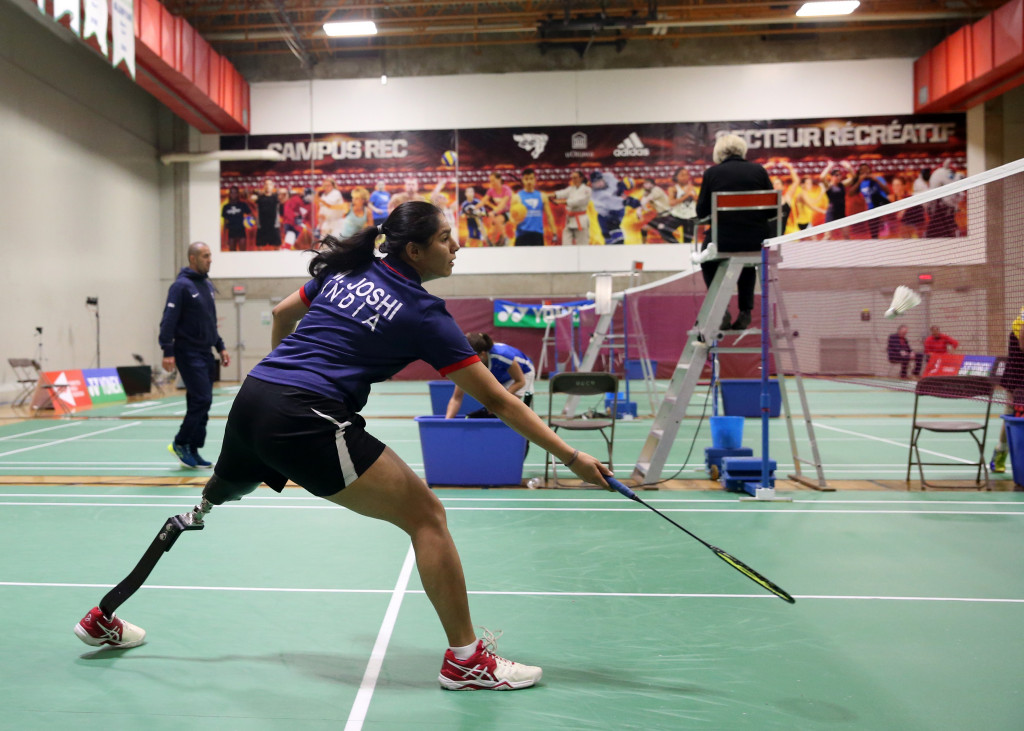
Joshi is vocal about disability and women’s rights in India
“Just as we talk about women’s rights, we should also be talking about disability rights,” added Joshi.
India has stipulated a tax on disability resources such as prosthetic legs and braille printing. Joshi is vocal about this issue on Twitter. “Why should we pay taxes to walk? It is a basic birth right. I think if we can all come together, we can go back to a time where we don’t have to pay taxes on this,” she states.
One in every four adults has a disability in the United States, according to Ariella Barker, an attorney and policy advisor in the US. “It begins with government policy. The important thing is to make sure the community calls them out on that. Why are they not talking about the biggest minority group in this country?” asks Barker.


















